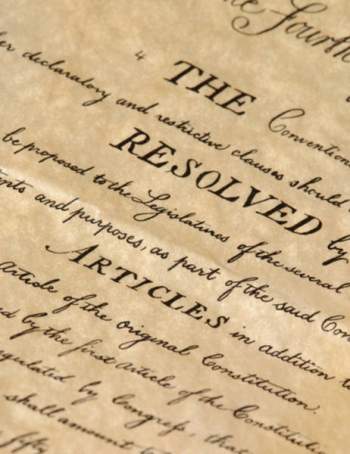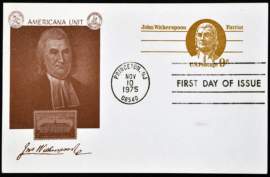
Republicanism Defined

Popular In Constitution
Purpose Of Lifetime Appointment And Pros And Cons Enumerated Powers Bicameral Legislature Background Article 3 Of The Constitution We The People 1st Amendment Who Wrote The Constitution Judicial Review Equal Protection Clause 5th Amendment 10th Amendment Three Fifths Compromise
Although the concept of Republicanism is primarily associated with the Federalist James Madison’s push for the ratification of the Constitution through the dissemination of the Federalist Papers, the origin of the term can be traced as far back as 380 B.C., when Greek philosopher Plato wrote The Republic - one of the oldest and foremost works on the topic of political theory. The contents of The Republic explored the dynamics of both leadership and servitude alike, and in his text, Plato hypothesized that an ideal governing body should be comprised of ‘philosophers’. However, Plato used the term ‘philosophers’ as a method of encapsulating the positive qualities that he had observed in the philosophers who had existed in the age in which he wrote his text.
Plato discussed that ‘philosophers’ were entities who were aware of what was in the best interest of the collective nation in which they lived. Plato felt that the interest of a nation’s majority, which was comprised of its citizens, superseded the interest of an elite minority.
Federalist figurehead James Madison was well-versed in the concepts set forth in Plato’s Republic, utilizing many of Plato’s theories in their collective authorship of the Federalist Papers. The term republicanism was used by James Madison in the Federalist Papers in order to illustrate the concept of a nation overseen by a governing body that was not only appointed by its citizens, but perpetually motivated by the interests of those same citizens.
Contrary to the methodology of a monarchy - or any other form of totalitarian ruling body - James Madison outlined republicanism as a political archetype in which citizens were not only given the opportunity to choose their own central government, but were also given the opportunity to choose to allow themselves to be governed. Placing the general citizenship on a tier above their respective governing body, republicanism was the first political ideology of its kind.
In the 1780s, a majority of the world’s superpowers were ruled under aristocratic monarchies - one of which being the British Empire under which the colonists had been ruled prior to the Revolutionary War. Upon the completion of the Revolutionary War, a national sentiment of disenchantment was shared by a majority of the citizens of the United States, which prompted the creation of the Articles of Confederation - a political framework that established each of the 13 states as individual, sovereign entities.
Although ambitious, the Articles of Confederation quickly propelled the United States into financial and political disarray, mostly due to the lack of jurisdiction granted to the central government. As a result, Federalist James Madison adopted the functional qualities from each political methodology, and thus, the ideology of republicanism was born.
The emergence of republicanism demonstrated in the writings of James Madison demonstrated the Federalist Papers logic, intelligence, and innate humanistic ideals. Because republicanism was so deeply rooted in the welfare and well-being of the individual citizen, it is considered as one of the most humanistic forms of political ideology. Relying on the ability of the citizen, republicanism not only allows for, but also urges the involvement of individual citizens in the process of establishing their respective governing body.



















